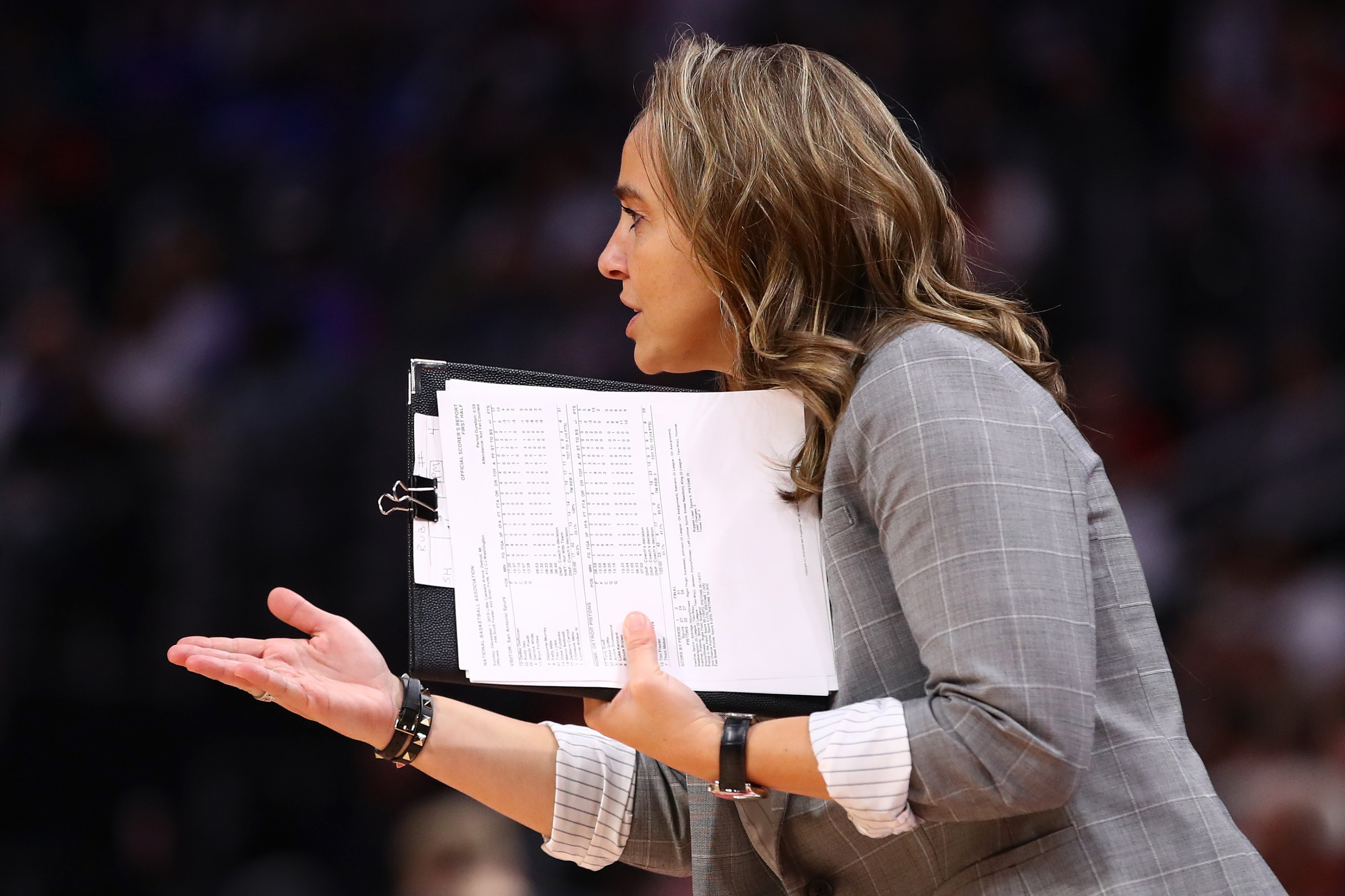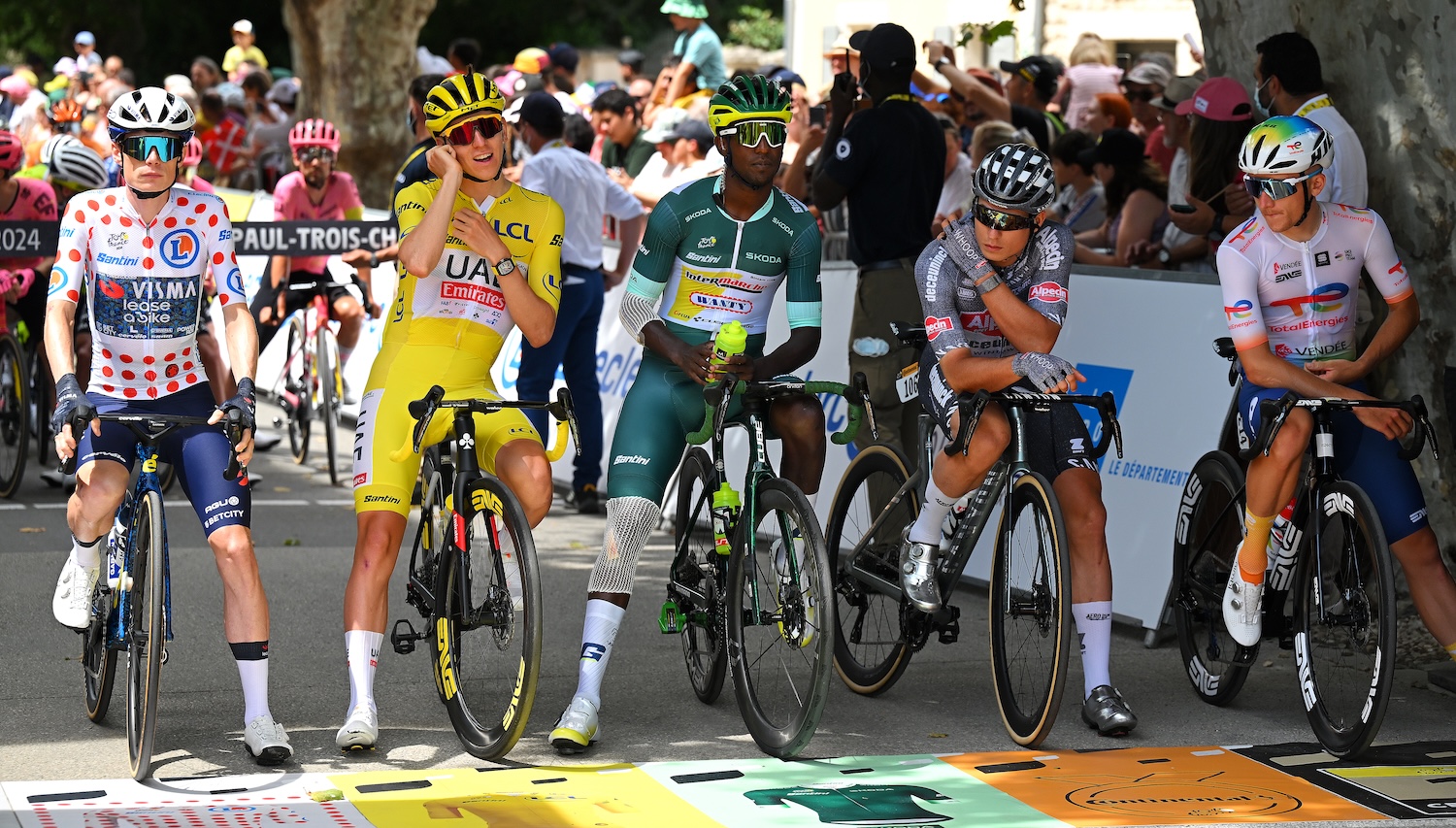In the Washington Post yesterday columnist Candace Buckner described her “unshakeable feeling of disappointment” upon learning that Becky Hammon will leave the San Antonio Spurs, where she is Gregg Popovich’s top assistant, to join the WNBA this summer as head coach of the Las Vegas Aces. The column painted Hammon’s situation—forced to “settle for being a footnote”—in a somewhat dismal light; maybe some sadness is warranted by that standard. “She will be the understudy who came close, who represented hopes for gender equity in the NBA and among head coaches,” Buckner wrote.
But it did strike me as overly elegiac, and as always, I wonder whether it does Hammon or anyone any good to imbue her every move with such symbolic heft. (I also wonder why the column takes for granted that Hammon could never return to the NBA, but whatever.) Hammon seems genuinely excited to coach the franchise she headlined for years; the Aces, formerly the San Antonio Silver Stars, retired her jersey last season. "This was not really about the NBA or the WNBA," Hammon said at her introductory press conference earlier this week. "This was about me personally being ready to have a team and wanting to have a team and wanting to sit in that chair and then being presented with an opportunity to do so." Even if you are inclined to classify each hire in professional sports as Progress or Not Progress, it's worth remembering that the WNBA is itself a weird coaching frontier for women to navigate. When you can look beyond proximity to men's sports as the sole bar for success, Hammon's journey might be seen as a heartening full-circle story: the WNBA produced a player who could return to the league eight years later as something of a blockbuster hire.
One of the funniest—by funny, I mean extremely depressing and awful—WNBA coaching tales I've heard was from Stanford graduate Kate Starbird, who remembered her first WNBA coach, a man in the very early years of the league, wondering aloud at practice whether women shot three-pointers and if not, did they really need to defend the perimeter? The extent to which a lot of WNBA coaches in those years were Just Some Guy They Found is kind of astonishing. It isn't all behind us, either. Derek Fisher's 40-96 record coaching the Knicks earned him a job as head coach of the Los Angeles Sparks in 2019, and the earned part is not even a joke. The Sparks GM at the time, Penny Toler, cited his record as "the main reason we're hiring him," a sign that he had been through adversity and no doubt emerged from it stronger. (Never mind that this was adversity of his own making.) His record alienating all the Sparks' best players in his first two seasons later earned him Toler's GM job, too.
Lynx coach Cheryl Reeve, progenitor of her own WNBA coaching tree now, admitted she was surprised by how quickly her male assistants got promotions. "It was really eye-opening, the benefit of being a man in coaching," Reeve said, after the Liberty hired her former assistant Walt Hopkins, a 34-year-old with a Harvard degree in educational psychology and three seasons as an assistant but no experience as a player or head coach. "For those of you that don’t know, Walter is a genius,” Liberty GM Jonathan Kolb told reporters at the press conference introducing him in 2020. That may well be; the genius never really revealed itself in the Liberty games I watched over the course of his tenure, and Hopkins and the Liberty parted ways last month. If gender equity is the goal here, Hammon's hiring does establish a genuinely promising standard—that great women's players will be coached by one of professional basketball's most talked-about coaching candidates, that Just Some Guy They Found isn't enough anymore. Reports from ESPN and The Athletic say Hammon's five-year contract will make her the WNBA's highest-paid head coach. The opaque financials of WNBA franchises prevent that clause from meaning much on its own, but an estimate from WNBA reporter Khristina Williams puts the annual salary in the high six- or low seven-figures.
I shouldn't write off Buckner's feeling of disappointment entirely. I don't think it's wrong to crave a more fluid relationship between men's and women's sports when it comes to hiring, and in basketball, Hammon was the most prominent face of that relationship. But I am stuck on a line in the Post column: "The glass ceiling remains intact, and any small cracks made over the past 7½ years are now just sad, visible reminders that a historic first remains a distant vision."
What gets missed in the preoccupation with firsts? Is it better for Hammon to coach a well-resourced WNBA team on the doorstep of a championship, or to make history overseeing some Sacramento Kings clown show? (Please do not ask what NBA team I root for. If you know, do not look up their record or the score of their most recent game.) Why see the cracks in the ceiling—15 women have served as NBA assistants, seven currently on NBA coaching staffs—so pessimistically?
That Hammon was (and again, still could be) a high-profile candidate for an NBA head coaching job flattered Gregg Popovich and flattered the NBA for many years. It signaled something about their values and it gave the NBA a flashy distinction over other major men's professional leagues. The trouble with symbols is how easy they are to hide behind, to fixate on at the expense of everything else. Hammon's impending departure from the NBA isn't an era's conclusion, and shouldn't be regarded as some setback or failed experiment. It should inspire some reflection among the NBA's leadership: What can the NBA do so that the women's league it operates is a truly desirable destination for more top coaching talent? And what can it do so that more women who play in the WNBA are given the same opportunities Hammon was in men's and women's basketball? This is less exciting work than imagining the First Woman Head Coach, surely. But just as making history doesn't always mean making progress, progress won't always announce itself in the form of history.







